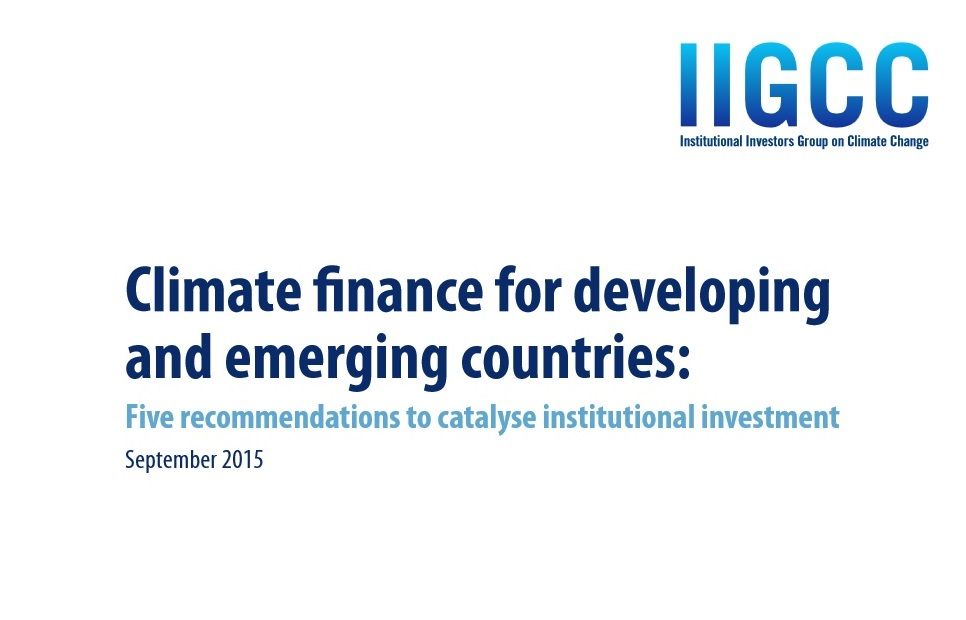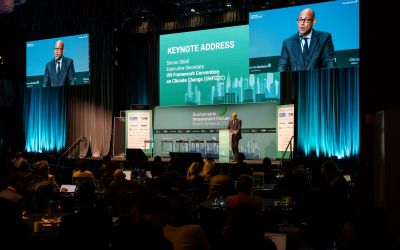Climate finance: Five recommendations to catalyse institutional investment
As momentum builds for the Paris climate summit at the end of 2015, attention is focussing on how to mobilise more climate finance flows to developing and emerging economies. This will be the essential element necessary to unlock a deal in Paris

As momentum builds for the Paris climate summit at the end of 2015, attention is focussing on how to mobilise more climate finance flows to developing and emerging economies. This will be the essential element necessary to unlock a deal in Paris.
IIGCC outlines five recommendations that – if implemented – would contribute significantly to scaling up institutional climate investment in developing and emerging economies.
1. Blend public and private finance to improve risk-return: Government buy-in for projects that will last for decades is essential. In addition, the unique risks in emerging and developing countries require reduction. Subordination of government investments (or government guarantees), securitization of real assets, insurance products, currency swaps and government seed capital for new funds can all help bring more investment into the countries concerned.
2. Provide predictability and transparency on future public climate finance flows: In order to signal the size of low-carbon infrastructure markets in emerging and developing countries, developed country governments should provide predictability and transparency on future climate finance flows.
Sponsored Content
3. Aggregate infrastructure assets: To tap into the market for large investments, infrastructure in emerging and developing countries needs to be aggregated, for example through blended funds and warehousing models.
4. Put in place a powerful national infrastructure development plan to implement the INDCs: The INDCs need to guide the design of national infrastructure development plans, which should be fully aligned with the need to reduce emissions.
5. Make sure key transaction enablers are in place: A robust project pipeline (supported by enhanced technical assistance and project preparation facilities), efficient capital markets, good bank intermediation and a favourable macro-economic environment with political stability are essential.






